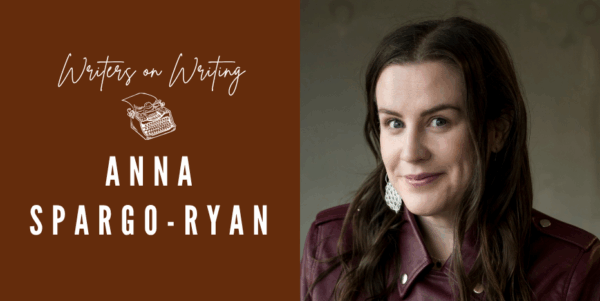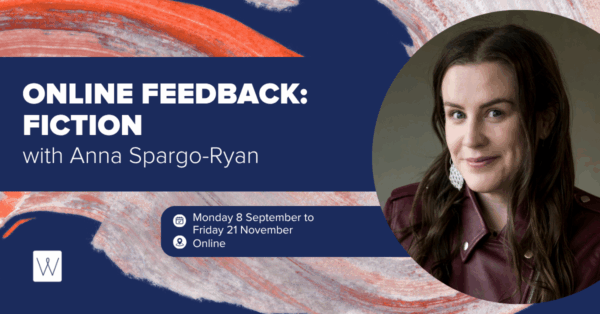
What is the best way to approach getting feedback on a manuscript? Should the writer have specific questions about what is or is not working in mind?
A writer should always have specific questions in mind when asking for feedback.
One of the most valuable skills you can develop as a writer is appreciation of what’s not working in a story – even if you don’t know how to fix it (yet) If you think you know how to fix it, do that instead. Real constructive feedback comes from first having clarity about what you think needs attention and asking related questions. If you hand over an entire manuscript with no guiding questions, the feedback you get will be less targeted, less resonant and, ultimately, less useful.
A manuscript is an enormous, complex thing; a mobile, moveable, living thing. When you get the chance to receive feedback, it’s crucial to home in on precisely what you want to know and make the most of the opportunity. State your needs plainly. Give direction. Don’t risk getting feedback that won’t help you move forward.
Examples of questions to ask might be:
- Does the dialogue between these characters ring true?
- Which character are you rooting for?
- How do you visualise the fictional city where the story is set?
- Are there places where the pacing feels uneven?
- Did you guess who committed the crime before the end of the first chapter?
When reading somebody else’s work, what is the first question you ask of it?
Often, “Why are you 130,000 words long?”
But otherwise – and it’s nebulous and unhelpful to say this – I want to know why it exists. What is it trying to do? What does it want me to do? When I teach writing, I talk a lot (a LOT) about the spine of the story, which is the central idea that everything keeps coming back to. Even the most speculative genre fiction has a core point to make, whether it’s about human nature or love or corruption or why we domesticated cats or something else altogether. I want the story to show me that early on. Why am I here, spending time with this book? How will I be changed by the end?
Have you ever radically altered your own work after receiving feedback?
Oh yes. I’m extremely insecure and, as a new writer, took every piece of feedback to heart. When my first novel was in structural edits, I focused so intently on a single piece of feedback that I rewrote my entire manuscript (this was the wrong choice).
Real, constructive feedback is a two-way conversation. It’s hard. So many new writers just want to be told they’re a once-in-a-generation talent who simply has no room for improvement. But that’s also not helpful. I think as writers move through their careers, they come to see (good) feedback as a gift. If a comment resonates, it improves the work. If it doesn’t, it can go in the bin.
But also, don’t be precious. Go into a feedback session with your heart open. Someone might stick knives in it, but I promise, if you’re willing, your work will be better for it.
As for “radically altering”: my advice is – don’t let someone else possess your work. Keep breathing your breath into it. As you’re editing, always make sure it’s recognisably yours.
Your writing deals (beautifully) with themes like loss, identity, and mental health. How have you approached receiving thorny feedback on personal or sensitive topics?
I no longer see any feedback as “thorny”. The fact that I write about deeply personal issues doesn’t – shouldn’t – protect me from criticism. My ambition is to write them as truthfully and beautifully as possible, so people want to read and learn and understand. If someone can suggest a way to do that better, I’m hungry for it. Give it to me. I don’t care if it’s a story about grief or trauma or a really good meal I had.
All that’s sacred is the ambition. The writing can always, always, always be improved.
Anna Spargo-Ryan is a Melbourne writer whose latest book A Kind of Magic, a memoir about life with complex mental illness, was shortlisted in the Queensland Literary Awards. She holds a PhD in Creative Writing and has been teaching writing for over 10 years. She is also the author of two novels, was the inaugural winner of the Horne Prize, and was the former Nonfiction Editor at Island.
Join Anna Spargo-Ryan for her course, Online Feedback: Fiction, Monday 8 September to Friday 21 November 2025 (3 months), online.

If you want to be the first to read great advice, prompts and inspiration from our incredible tutors, subscribe to our weekly e-newsletter Newsbite.
More from Writing NSW
Check out our full range of writing courses in Sydney, our online writing courses and our feedback programs to see how we can help you on your creative writing journey. Find out about our grants and prizes, as well as writing groups across NSW, and sign up to our weekly newsletter for writing events, opportunities and giveaways.
